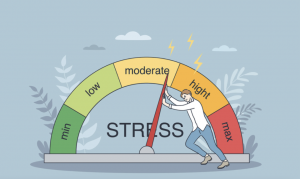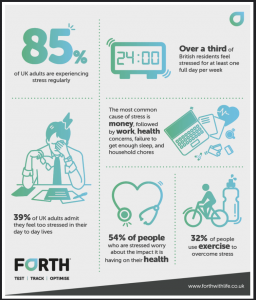
Start fighting back against stress and lowering your stress levels.
Source: Virgin
You have probably heard it many times – “you should exercise when you are stressed”. However, when we have busy schedules, it can be challenging to implement exercise into our daily routines, especially when we do not know how it can relieve stress. Even though stress is known to be harmful, it is impossible to prevent it in life. Thus, it is important to find the ideal coping mechanism.
What is stress & how does it affect you?
Have you encountered a challenge, had an exam, or faced a difficult decision before? These are some examples of situations that could have made you feel stressed. Firstly, a stressful situation triggers the body’s sympathetic nervous system, which controls the fight-or-flight response when faced with a stressful situation. This response is responsible for providing your body with the tools to overcome a stressful situation. However, when the stress response is prolonged, it can become harmful. Many adverse effects are associated with long-term stress, such as weakened immune system, high blood pressure, digestive problems, exhaustion and depression. Prolonged stress can also be associated with poor habits such as increased alcohol consumption, overeating, using drugs and smoking. Thus, taken all together, long-term stress can be very harmful, so finding ways to reduce stress is essential for an individual’s long-term health.

Stress is experienced by everyone, so knowing how to improve your stress levels is vital. Source: Forth With Life
Exercise may be the ticket to reducing stress
Exercise is good for your physical, mental and overall health. Physical activity specifically helps with stress as it improves the flow of oxygen and blood to the brain, along with increasing our brain’s production of endorphins. Endorphins are considered to be the chemical messengers in the body that make you “feel-good”, which provides a sense of happiness after exercise. Aside from the biological effects, exercise also provides a distraction from stress by providing clarity and calming effects on your mind. Thus, these provisions work together to reduce stress and improve well-being, while preventing long-term stress.
Recently, studies have proved that exercise is effective in relieving stress and depression and improving cognitive function. The study found that people felt happier and less stressed after exercising. Furthermore, there was an association found between adults who did and did not exercise – adults who exercised had lower stress levels than those who did not exercise. Therefore, demonstrating the importance of exercising being an effective stress reliever.
Dr.Thompson discusses exercise and the effects on the brain. Source: https://www.youtube.com/watch?v=xpy_rAWSWkA
How much exercise should you get & what should I do?
It is recommended by the American Heart Association that you should aim to get at least 150 minutes of moderate aerobic exercise during a week, which can be split into five 30 minute workouts throughout the week to reduce stress. Some examples of aerobic exercises that are recommended are walking, biking, and dancing. Overall, it is best to prioritize exercise in your daily routine to reduce stress.
Conclusion
Next time you are having a stressful day and want to skip out on exercising, think again, and consider the stress-relieving effects exercise can provide. Ultimately, everyone experiences stress, so knowing how to deal with stress effectively can improve your overall health.

6 responses to “Are you feeling stressed? Exercise may be the key to reducing stress.”